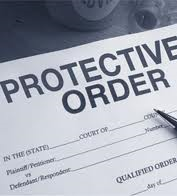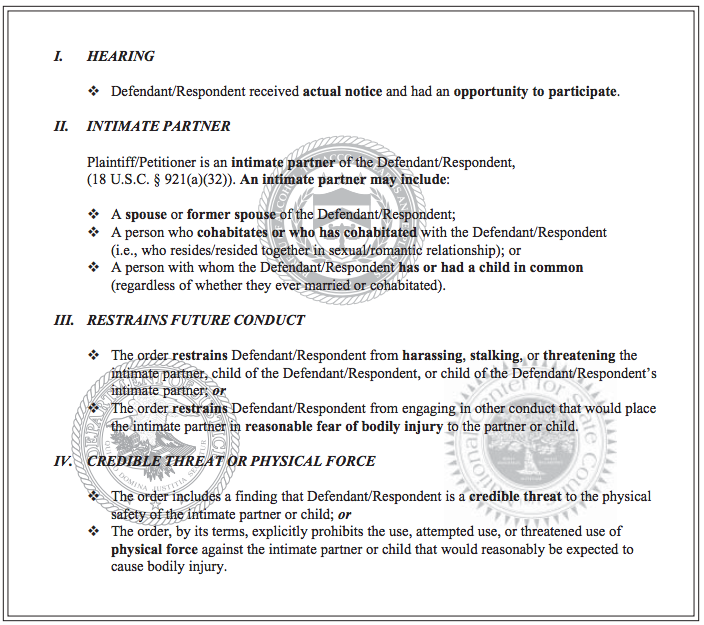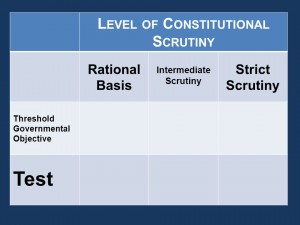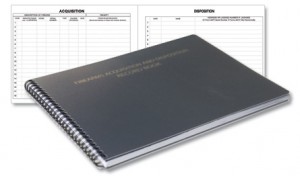 The issuance of a protective order has become an increasingly common event in our judicial system and those who own firearms need to be particularly aware of the implications of becoming the subject of such an order. And this is certainly true of those who own a valuable NFA collection.
The issuance of a protective order has become an increasingly common event in our judicial system and those who own firearms need to be particularly aware of the implications of becoming the subject of such an order. And this is certainly true of those who own a valuable NFA collection.
By now, I believe that most people understand that during the time a person is subject to a protective order, they may be subject to a prohibition on the possession of a firearm. However, in an interesting twist on the topic, I received a call from a potential client this morning asking whether this prohibition on possession might also apply to suppressors.
My initial thought was that suppressors are not firearms and are little different than a scope or other accessory.
However, I knew better than to apply the cold light of pure logic to a legal question and so I started with a quick review of Virginia state law.
Section 18.2-308.1:4 of the Code of Virginia governs the purchase or transportation (but not mere possession) of firearms by persons subject to protective orders.
It is unlawful for any person who is subject to (i) a protective order … to purchase or transport any firearm while the order is in effect. Any person with a concealed handgun permit shall be prohibited from carrying any concealed firearm, and shall surrender his permit to the court entering the order, for the duration of any protective order referred to herein. A violation of this section is a Class 1 misdemeanor.
A quick review of Virginia law and case law fails to show that the term ‘firearm’ should be expanded to encompass a suppressor and in any case, Virginia law only prohibits the purchase and transportation of ‘firearms’. It does not prohibit their continued possession.
So … It appears that we do not have a state law issue. Now we turn to federal law.
18 U.S.C. 922(g)(8) is the federal statute which governs the transportation and possession of firearms (and ammunition) by those subject to certain protective orders.
(g) It shall be unlawful for any person
…
(8) who is subject to a court order that—
(A) was issued after a hearing of which such person received actual notice, and at which such person had an opportunity to participate;
(B) restrains such person from harassing, stalking, or threatening an intimate partner of such person or child of such intimate partner or person, or engaging in other conduct that would place an intimate partner in reasonable fear of bodily injury to the partner or child; and
(C) (i) includes a finding that such person represents a credible threat to the physical safety of such intimate partner or child; or
(ii) by its terms explicitly prohibits the use, attempted use, or threatened use of physical force against such intimate partner or child that would reasonably be expected to cause bodily injury; …
to ship or transport in interstate or foreign commerce, or possess in or affecting commerce, any firearm or ammunition; or to receive any firearm or ammunition which has been shipped or transported in interstate or foreign commerce.
It should be noted that this only applies to certain protective orders that meet enhanced requirements. However, we are once again left with the term ‘firearm’ that may be subject to definition. In fact, we do have such a definition in 18 U.S.C. 921(a)(3).
(a) As used in this chapter
…
(3) The term “firearm” means
(A) any weapon (including a starter gun) which will or is designed to or may readily be converted to expel a projectile by the action of an explosive;
(B) the frame or receiver of any such weapon;
(C) any firearm muffler or firearm silencer; or
(D) any destructive device. Such term does not include an antique firearm.
So there you have it. If you are subject to a protective order that meets the requirements of 18 U.S.C. 922(g)(8) then you must treat your suppressor just like a firearm or ammunition and the federal prohibition on possession and transportation will apply.
If you are uncertain whether the protective order against you meets these requirements, the following chart provided by the ATF should be of some assistance. If you match at least one diamond from each section then you are subject to the federal prohibition.
Should you receive notice that you are subject to such a protective order, I recommend immediately surrendering possession and control of your firearms, suppressors, and ammunition to a joint trustee of your trust if you are using a trust to hold your items, or, if not, to a trusted friend or family member for the duration of the protective order.


 Yesterday I received a call from a friend in Alabama who wanted my opinion on a proposed amendment to the Alabama Constitution which will be on the statewide ballot this election.
Yesterday I received a call from a friend in Alabama who wanted my opinion on a proposed amendment to the Alabama Constitution which will be on the statewide ballot this election. Tonight I received a call from a friend who was wondering whether or not a trust could acquire an FFL 03 license.
Tonight I received a call from a friend who was wondering whether or not a trust could acquire an FFL 03 license. Last week I received a call from an FFL client who was concerned about a conversation he had with an ATF agent during a routine audit.
Last week I received a call from an FFL client who was concerned about a conversation he had with an ATF agent during a routine audit. Earlier this week I received a call from a client who had a last-minute opportunity to attend an out-of-state hunting event. While he was excited about the opportunity, he had a problem. The gun he wanted to take was an SBR and he did not have a Form 20 for the location where the hunt was taking place.
Earlier this week I received a call from a client who had a last-minute opportunity to attend an out-of-state hunting event. While he was excited about the opportunity, he had a problem. The gun he wanted to take was an SBR and he did not have a Form 20 for the location where the hunt was taking place.



